
Vac: The Hidden Gem on the Danube
Nestled on the banks of the Danube River, Vac is a charming town that offers a delightful mix of history, culture, and natural beauty. Just 34 kilometers north of Budapest, this quaint city is a perfect escape for those looking to experience the authentic Hungarian lifestyle away from the hustle and bustle of the capital. Vac is known for its well-preserved Baroque architecture, which can be seen throughout the town. The main square, Március 15. tér, is particularly stunning, with its colorful buildings and the iconic White Church (Fehértemplom). The town's narrow streets are lined with inviting cafes, boutique shops, and historical landmarks, making it a joy to explore on foot. One of the highlights of Vac is its riverside promenade. Visitors can take a leisurely stroll along the Danube, enjoying the scenic views and the fresh air. The town also boasts several museums, including the Tragor Ignác Museum, which offers insights into the local history and culture. For nature lovers, the nearby Naszály Hill provides excellent hiking opportunities with panoramic views of the region.
Local tips in Vac
- Visit on a weekday to avoid the weekend crowds and enjoy a more relaxed experience.
- Don't miss the local markets, especially on Wednesday and Saturday mornings, for fresh produce and handmade crafts.
- Try the local pastries from one of the town's many bakeries; they are a delightful treat.
- Consider renting a bike to explore the town and the surrounding countryside.
- Check the local event calendar for festivals and cultural events happening during your visit.
Vac: The Hidden Gem on the Danube
Nestled on the banks of the Danube River, Vac is a charming town that offers a delightful mix of history, culture, and natural beauty. Just 34 kilometers north of Budapest, this quaint city is a perfect escape for those looking to experience the authentic Hungarian lifestyle away from the hustle and bustle of the capital. Vac is known for its well-preserved Baroque architecture, which can be seen throughout the town. The main square, Március 15. tér, is particularly stunning, with its colorful buildings and the iconic White Church (Fehértemplom). The town's narrow streets are lined with inviting cafes, boutique shops, and historical landmarks, making it a joy to explore on foot. One of the highlights of Vac is its riverside promenade. Visitors can take a leisurely stroll along the Danube, enjoying the scenic views and the fresh air. The town also boasts several museums, including the Tragor Ignác Museum, which offers insights into the local history and culture. For nature lovers, the nearby Naszály Hill provides excellent hiking opportunities with panoramic views of the region.
When is the best time to go to Vac?
Iconic landmarks you can’t miss
National Botanical Garden
Explore the National Botanical Garden in Vác, Hungary, a serene arboretum filled with diverse flora and peaceful landscapes for every nature lover.
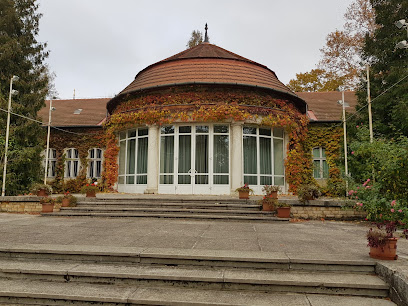
Assumption Cathedral, Vác
Explore the stunning Assumption Cathedral in Vác, a beautiful Gothic Revival masterpiece and a must-visit landmark in Hungary.
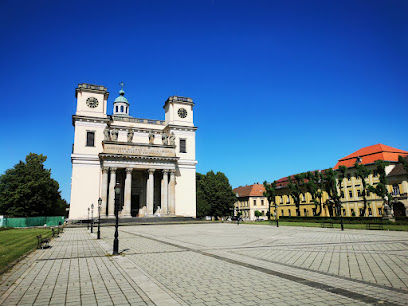
Triumphal Arch of Vác
Explore the grandeur of the Triumphal Arch of Vác, a remarkable historical landmark that embodies the spirit of Hungarian heritage and architectural beauty.
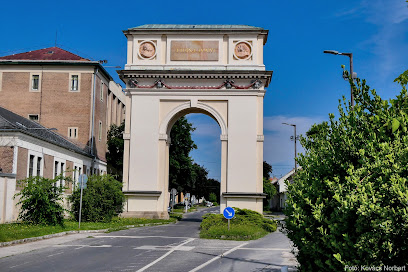
Tragor Ignác Múzeum Memento Mori/Ars Memorandi Kiállítóhely
Discover the Tragor Ignác Museum in Vác, where Memento Mori meets artistry, offering a unique cultural experience that reflects Hungary's rich heritage.
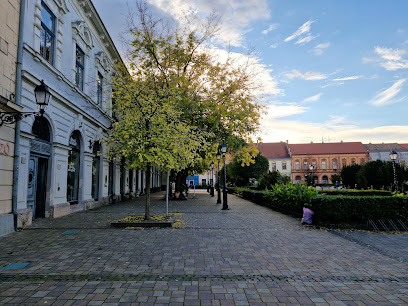
Church of the Whites
Experience the serene beauty and rich history of the Church of the Whites in Vác, Hungary, a must-visit Catholic attraction.
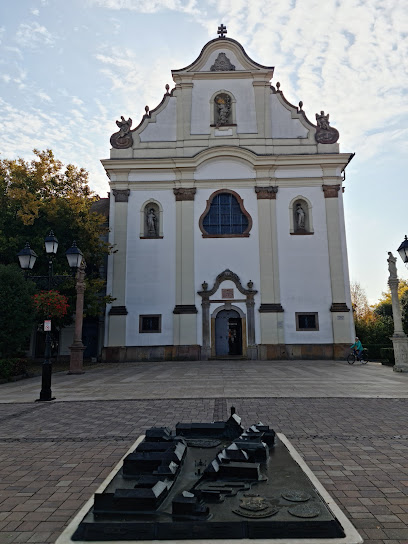
Bishop's Palace
Explore the Bishop's Palace in Vác, a stunning example of architectural artistry and rich ecclesiastical history in Hungary.
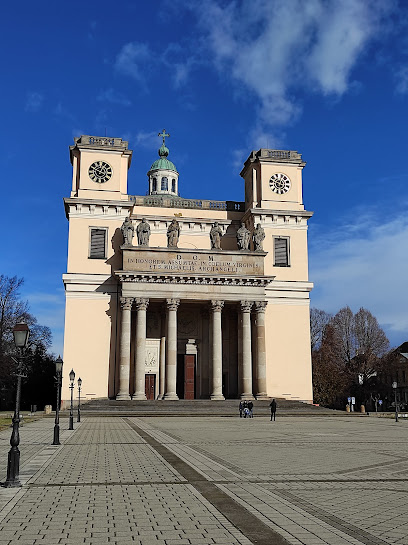
Pannónia Ház
Explore Pannónia Ház in Vác, Hungary – a cultural gem showcasing the richness of Hungarian art and creativity.
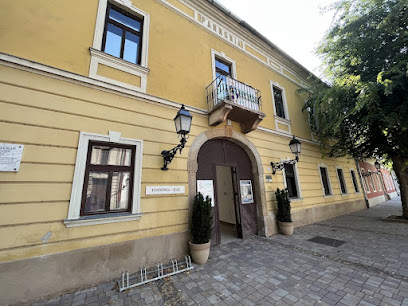
Bécsi vagy felső kapu
Explore the historical significance and architectural beauty of Bécsi vagy felső kapu in Vác, Hungary, a gateway to the past and a hub for modern culture.
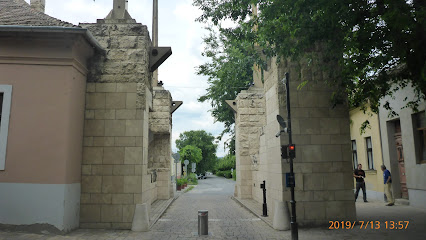
Sajdik Ferenc gyűjtemény
Explore the creative genius of Ferenc Sajdik at the Sajdik Ferenc Museum in Vác, a captivating hub of art and culture.
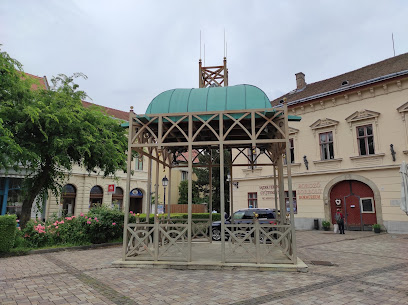
Tourinform Vác
Explore Vác, Hungary: A Tourist Information Center Offering Maps, Tickets, and Local Gifts to Enhance Your Travel Experience.
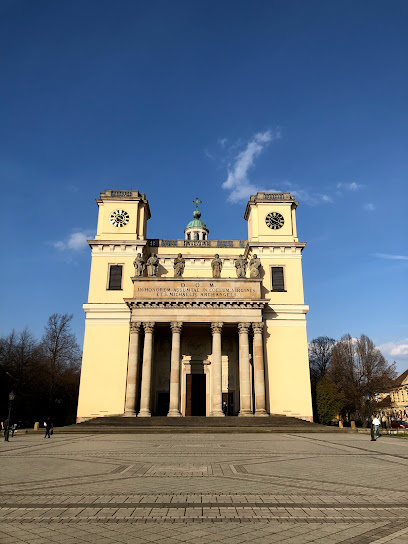
Harangjáték pavilon
Experience the serene beauty and rich heritage of Harangjáték Pavilion, a must-see tourist attraction in Vác, Hungary.
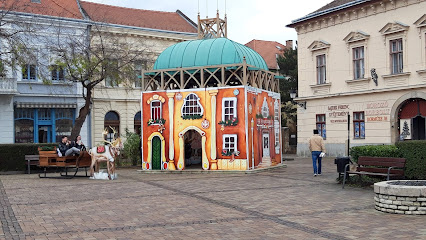
Vác vára
Explore the captivating history and artistic heritage at Váci Vára Museum in Vác, Hungary - a true cultural gem for history lovers.
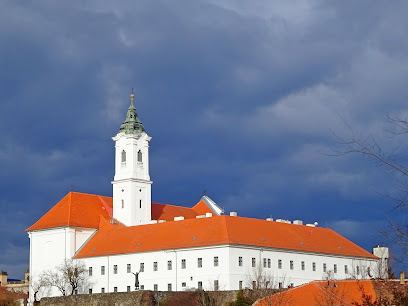
Vác Város Levéltára
Explore Vác City Archives, a historical museum that reveals the rich cultural heritage and stories of Vác, Hungary, through its fascinating collection.
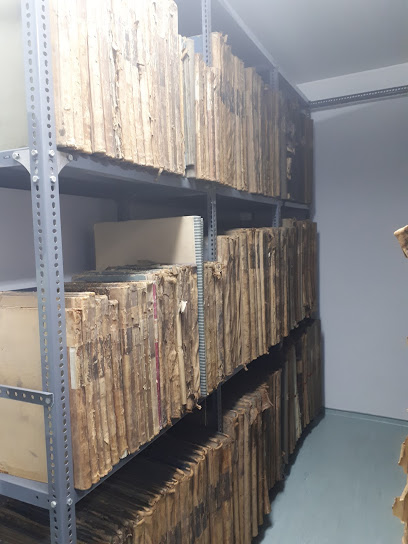
Vác belváros
Discover the historical charm and vibrant culture of Vác Belváros, a picturesque tourist attraction on the banks of the Danube River.
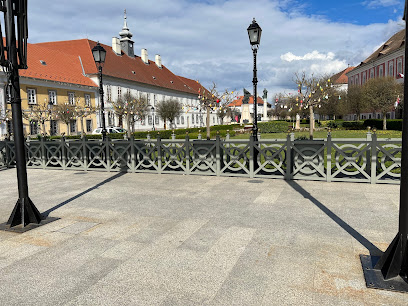
Vác Liszt Ferenc sétány
Experience the beauty and tranquility of Vác Liszt Ferenc sétány, a picturesque promenade that blends nature, culture, and culinary delights along the Danube.
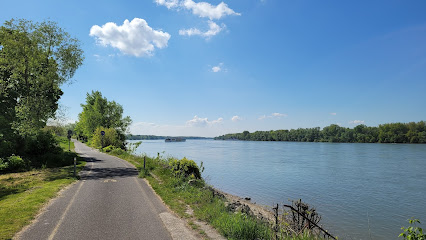
Unmissable attractions to see
Fisherman's Bastion
Explore the fairy-tale architecture and stunning views of Fisherman's Bastion, Budapest's historic fortress overlooking the Danube River.
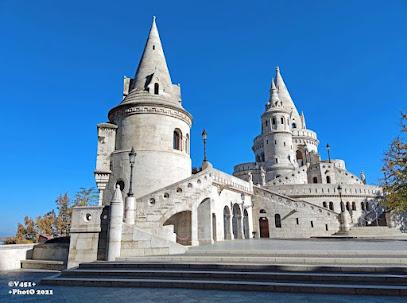
Central Market Hall
Explore Budapest's Central Market Hall: A bustling hub of local flavors, fresh produce, and vibrant culture in a stunning architectural setting.
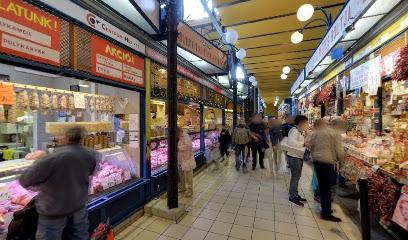
Heroes' Square
Explore Budapest's Heroes' Square, a stunning plaza rich in history, culture, and architectural beauty, perfect for an unforgettable day out.
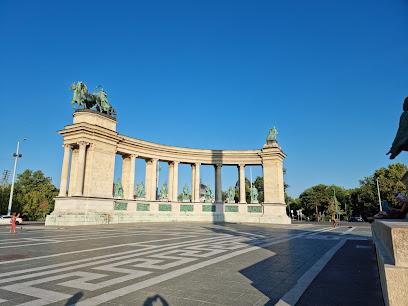
City Park
Experience the lush beauty and vibrant culture of City Park, Budapest's premier green oasis perfect for relaxation and exploration.
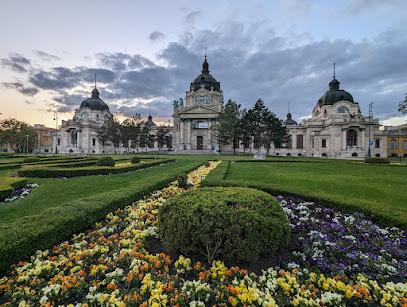
St. Stephen's Basilica
Explore the breathtaking St. Stephen's Basilica in Budapest, a stunning blend of architectural beauty, rich history, and spiritual significance.
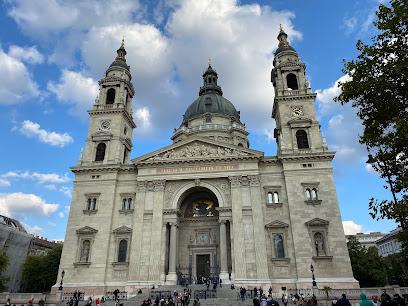
Szimpla Kert
Discover Szimpla Kert, Budapest's iconic ruin pub that offers a unique blend of culture, nightlife, and local flavors in a vibrant atmosphere.
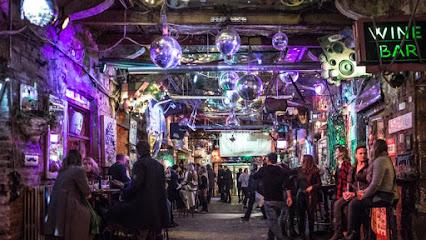
Buda Castle
Experience the majesty of Buda Castle, a UNESCO World Heritage Site in Budapest, where history, art, and stunning views converge.
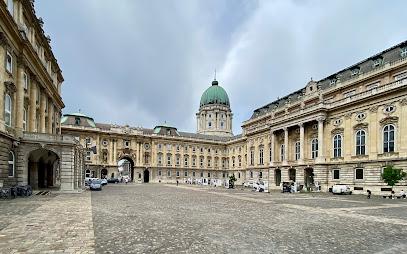
Széchenyi Thermal Bath
Discover the healing waters and historic grandeur of Széchenyi Thermal Bath, a must-visit spa in Budapest for relaxation and rejuvenation.
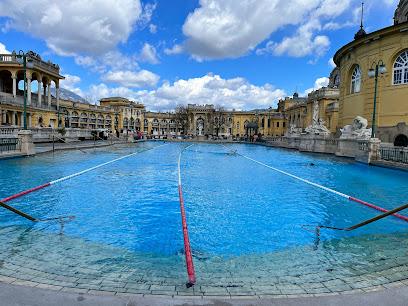
Budapest Zoo & Botanical Garden
Discover the enchanting biodiversity at Budapest Zoo & Botanical Garden, where wildlife and lush landscapes blend seamlessly in Hungary's capital.
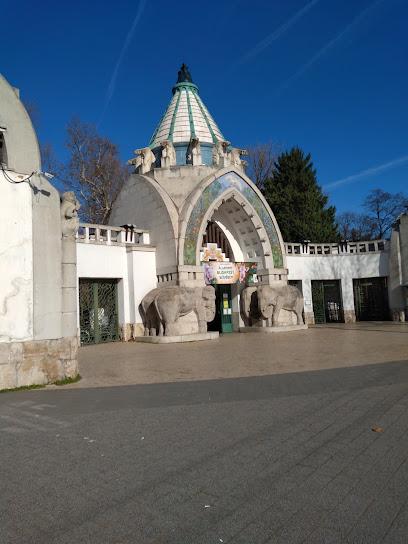
Gellért Hill
Explore the breathtaking views and rich history of Gellért Hill, a stunning natural preserve and iconic tourist attraction in Budapest.
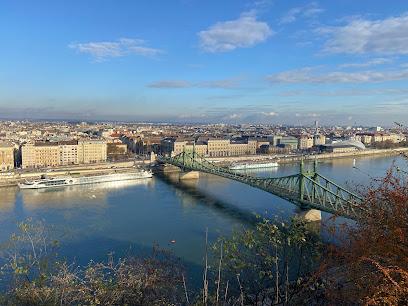
Gellért Thermal Bath
Experience the historic Gellért Thermal Bath in Budapest, where stunning architecture meets rejuvenating thermal waters for a serene escape.
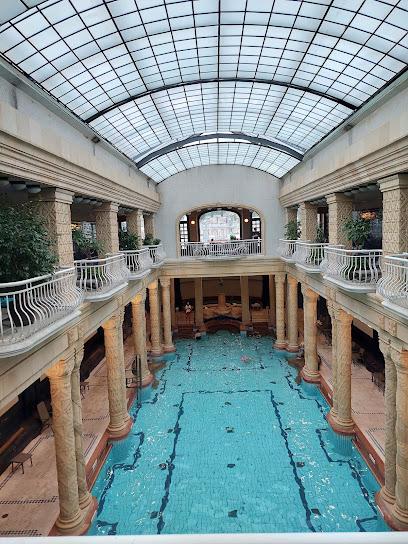
Dohány Street Synagogue
Discover the grandeur of Dohány Street Synagogue, a historical gem in Budapest that reflects the city’s rich Jewish culture and heritage.
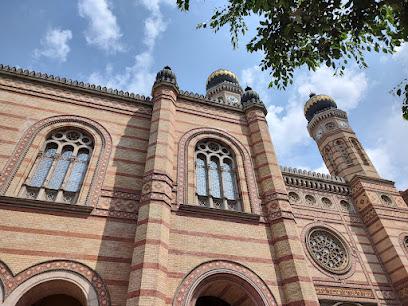
The Church of Our Lady of Buda Castle
Explore the stunning Church of Our Lady of Buda Castle in Budapest, a Gothic architectural gem rich in history and breathtaking views.
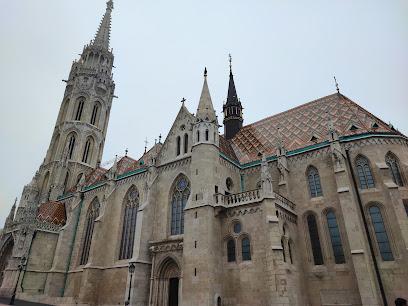
Hungarian Parliament Building
Discover the stunning architecture and rich history of the Hungarian Parliament Building, a must-see landmark in Budapest, Hungary.
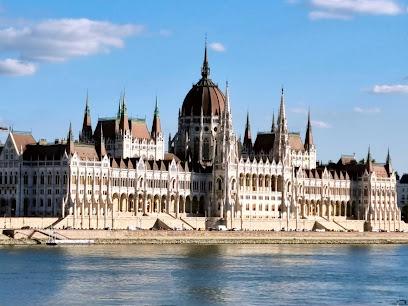
Ferris Wheel of Budapest
Soar high above Budapest and capture breathtaking views of the city skyline at the iconic Ferris Wheel of Budapest, a must-visit tourist attraction.
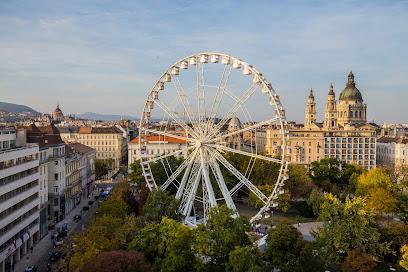
Essential places to dine
Halászkert Étterem
Experience authentic Hungarian cuisine at Halászkert Étterem - where seafood delights meet warm hospitality in the heart of Vác.
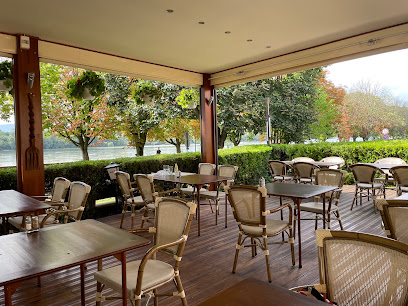
Hekk Terasz Vác
Discover culinary excellence at Hekk Terasz Vác - where delicious food meets stunning views in Hungary's picturesque town.
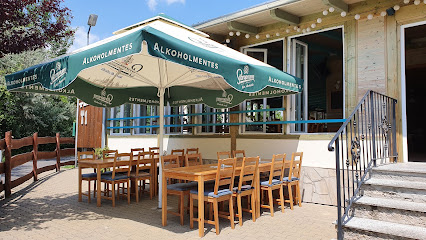
Ittali Pizza Vác
Experience authentic Italian flavors at Ittali Pizza Vác - where every slice is crafted with passion and quality ingredients.
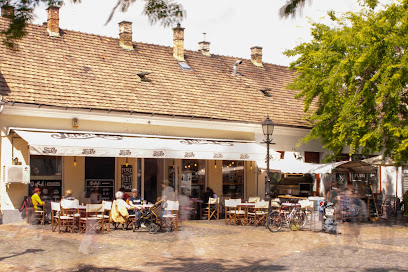
Remete Pince Étterem
Experience authentic Hungarian cuisine in a cozy setting at Remete Pince Étterem in Vác.
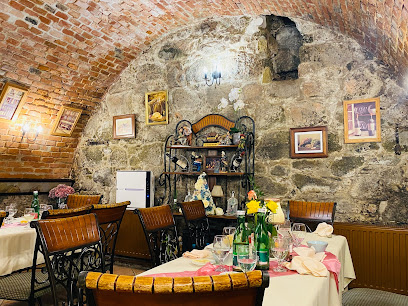
Farm Burger Vác
Discover Farm Burger Vác: where gourmet burgers meet local flavors in the heart of Hungary.
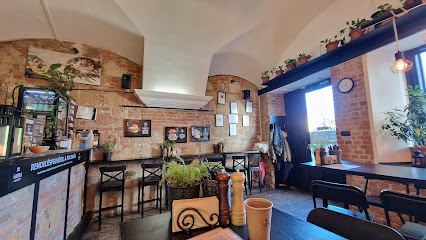
KFC Vác DT
Enjoy delicious fried chicken and quick meals at KFC Vác DT while exploring the beautiful town of Vác.
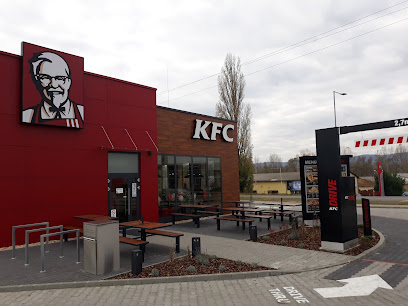
Pampalini Pizzéria és Étterem
Discover Pampalini Pizzéria és Étterem: A Culinary Haven in Vác Serving Delicious Hungarian and Italian Cuisine.
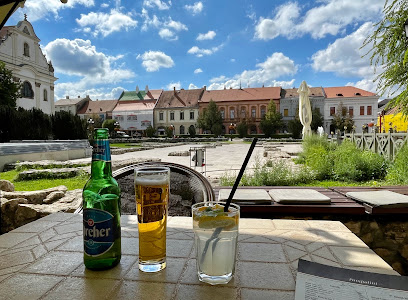
Rubra Art Lounge
Discover culinary artistry at Rubra Art Lounge in Vác - where exquisite dishes meet vibrant creativity.
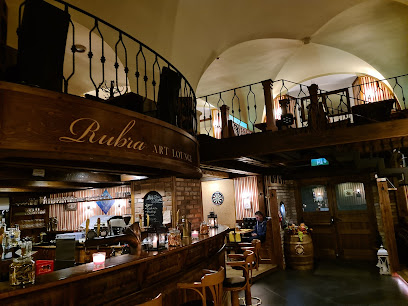
Csocsaj Grill
Discover authentic Hungarian flavors at Csocsaj Grill in Vác – where tradition meets taste in every bite.
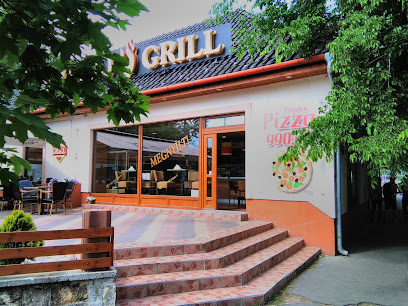
Révkapu Kisvendéglő
Experience authentic Hungarian cuisine at Révkapu Kisvendéglő in Vác—where traditional flavors meet warm hospitality.
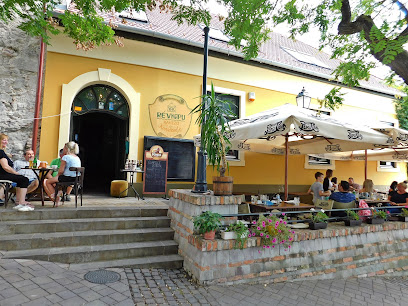
Pizzéria Giuseppe
Experience authentic Italian flavors at Pizzéria Giuseppe in Vác - where every slice tells a story.
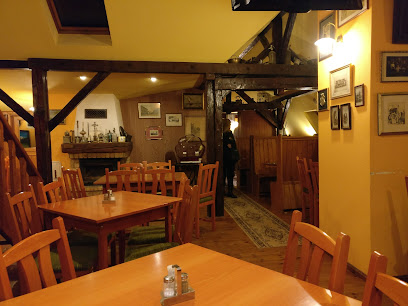
Travel Kávézó és Terasz
Experience delightful Hungarian cuisine at Travel Kávézó és Terasz in Vác – perfect for coffee lovers and food enthusiasts alike.
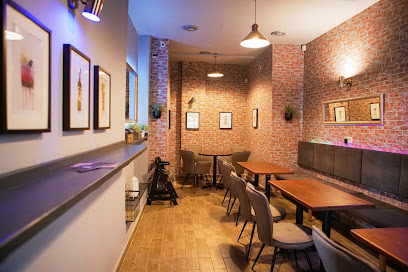
Lujza & Koriander | bed • brunch • coffee
Experience the perfect blend of comfort and cuisine at Lujza & Koriander in Vác, where every breakfast is a celebration of flavor.
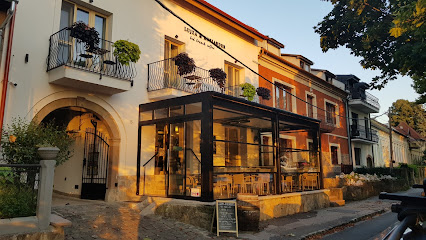
Royal Prémium Svédasztalos Étterem
Discover the delightful buffet at Royal Prémium Svédasztalos Étterem in Vác - where every meal is a celebration of Hungarian flavors.
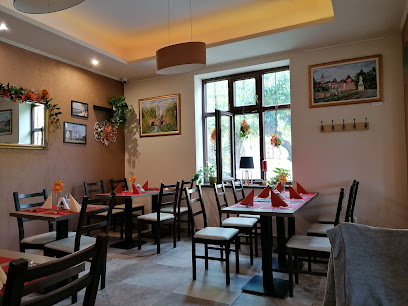
Revóczi Önkiszolgáló Étterem
Discover delicious fast food at Revóczi Önkiszolgáló Étterem in Vác – where quick bites meet great taste!
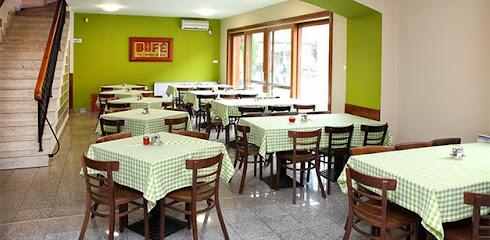
Markets, malls and hidden boutiques
Tibi Grocery store
Explore Tibi Grocery Store in Vác for a delightful shopping experience featuring local products and everyday essentials.

JátékShop Webáruház és játékbolt
Explore JátékShop in Vác for a magical shopping experience filled with toys, games, and endless fun for children of all ages.

Háda
Unearth unique fashion treasures at Háda, the renowned used clothing store in Vác, Hungary, perfect for eco-conscious shoppers.
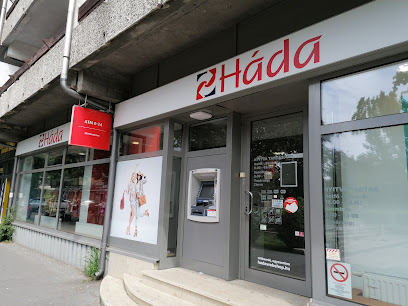
Tolerián Antik Kft.
Explore the enchanting world of antiques at Tolerián Antik Kft. in Vác, where every artifact tells a story of its own.
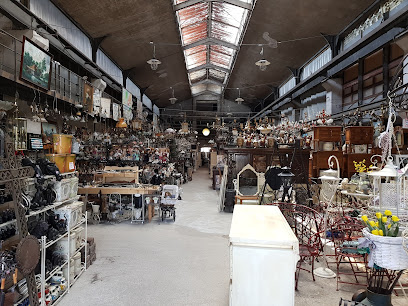
Old-Fon Kft. Antiques
Uncover unique antiques and architectural treasures at Old-Fon Kft. Antiques in Vác, Hungary – a paradise for collectors and history lovers alike.
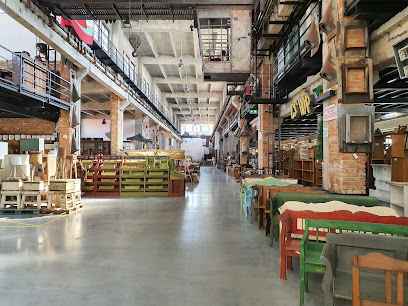
Tibi Bolt
Experience the vibrant local culture at Tibi Bolt, a variety store in Vác offering unique products and local delicacies for every traveler.
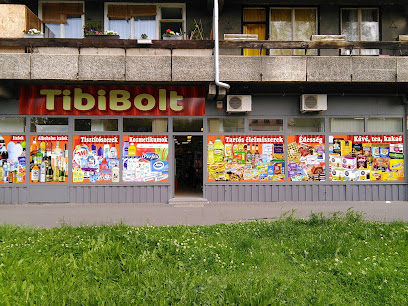
Rebel's Military - militaryplaza.hu
Explore Rebel's Military in Vác, Hungary, your go-to destination for unique army and navy surplus gear and military memorabilia.
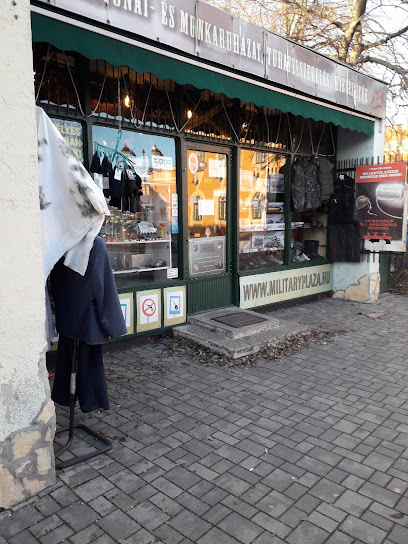
Rómeó Férfi Ruházat, Öltönyszalon ,Vác (dm-el,-Drogerie Markt -Szemben!)
Explore Rómeó Férfi Ruházat for the finest men's clothing in Vác, blending style with quality for an unforgettable shopping experience.
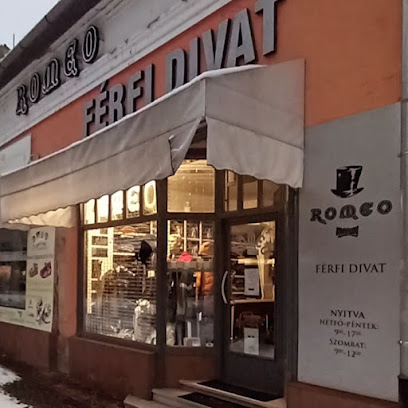
Anita kincses műhelye
Discover the charm of handcrafted gifts at Anita Kincses Műhelye in Vác, where local artistry meets unique shopping experiences.
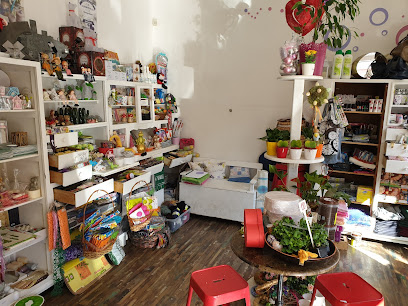
Aphrodite Textilház
Discover the vibrant world of textiles at Aphrodite Textilház, Vác's premier fabric store with a rich selection and expert guidance.
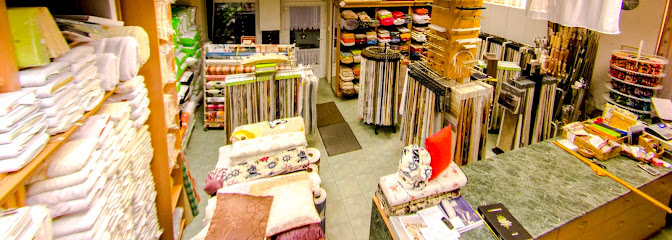
Anna Ásványékszer és Ajándékbolt
Explore Anna Ásványékszer és Ajándékbolt in Vác, where handmade jewelry, unique rocks, and pottery await to enrich your travel experience.
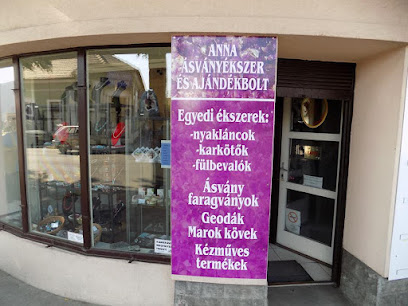
Tatra Flavors Shop
Discover authentic Hungarian flavors at Tatra Flavors Shop in Vác, where local delicacies come alive in a warm and welcoming atmosphere.
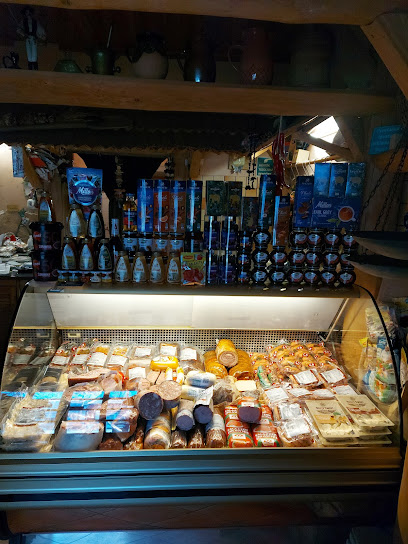
Váci Bagoly Antikvárium & Régiségbolt/ Vác Antikvárium
Explore Váci Bagoly Antikvárium, a hidden gem in Vác, offering a delightful array of antiques, rare books, and unique gifts for every traveler.
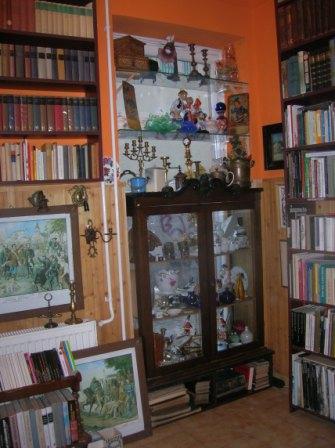
Corner
Explore Corner in Vác for a stylish selection of men's clothing that combines quality, comfort, and contemporary design in a charming shopping atmosphere.
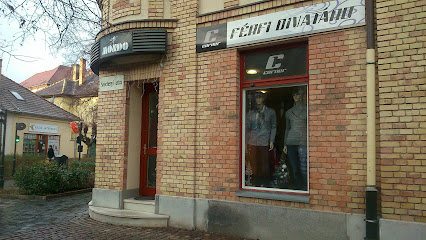
PModa Divatáru
Explore PModa Divatáru in Vác for trendy women's clothing and stylish bags, perfect for fashion-forward travelers seeking unique styles.
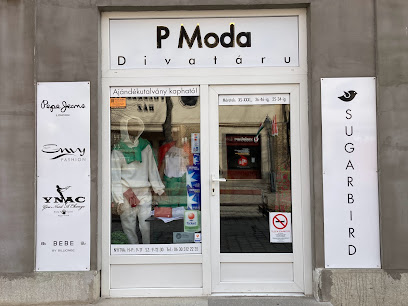
Essential bars & hidden hideouts
Rubra Art Lounge
Discover the culinary artistry of Rubra Art Lounge in Vác, where food meets creativity in an inviting atmosphere.
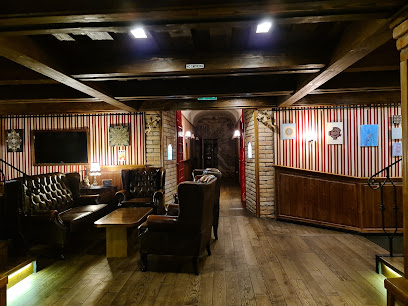
Kertünk bár és kilátó
Experience the charm of Vác at Kertünk Bár és Kilátó, a scenic bar offering delightful drinks and stunning views for tourists.
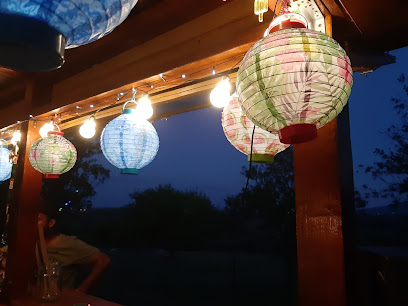
HBH Kocsma Söröző
Discover the local charm and vibrant atmosphere at HBH Kocsma Söröző, the perfect brasserie experience in Vác.
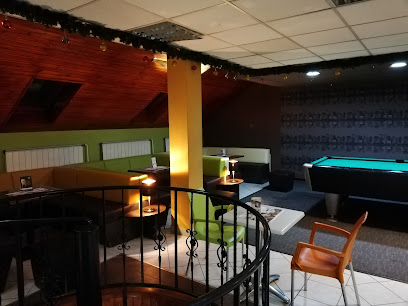
Lámpás söröző és grillterasz
Discover the vibrant grill terrace at Lámpás söröző és grillterasz in Vác, where delicious grilled dishes meet a lively dining atmosphere.
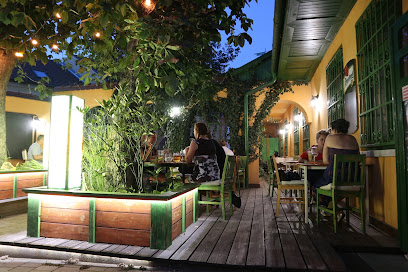
Kompi Terasz Vác
Discover the culinary delights of Hungary at Kompi Terasz Vác, where traditional flavors meet modern dining in a charming atmosphere.
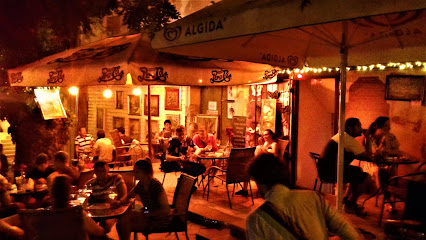
Suti Brothers Pub
Discover the vibrant charm of Suti Brothers Pub in Vác, Hungary, where exceptional drinks meet local culture in a cozy atmosphere.
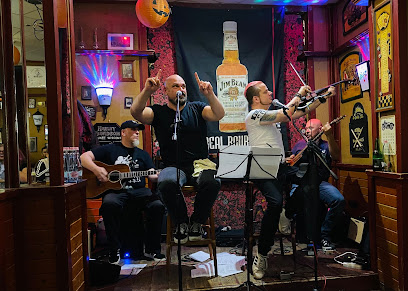
JazzMine Club
Discover the vibrant atmosphere of JazzMine Club in Vác, Hungary, where live music and delightful drinks create unforgettable nights.
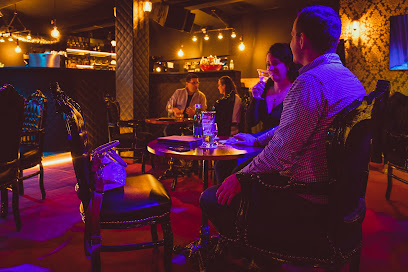
Bank Presszó
Experience the lively atmosphere and refreshing drinks at Bank Presszó, a must-visit bar in Vác, Hungary.
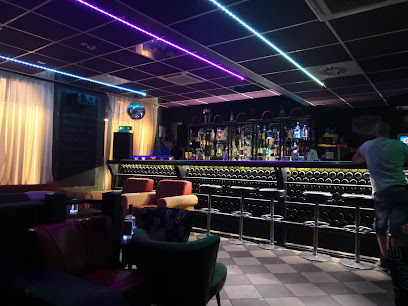
Rustiq Bar
Discover the charm of Rustiq Bar in Vác, where rustic ambiance meets a vibrant drink selection for an unforgettable night out.
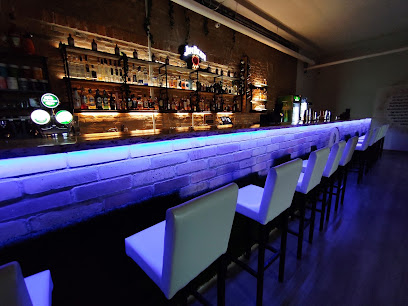
Bözsi Néni kocsmája
Discover authentic Hungarian flavors and a welcoming atmosphere at Bözsi Néni Kocsmája, a charming pub in the heart of Vác.
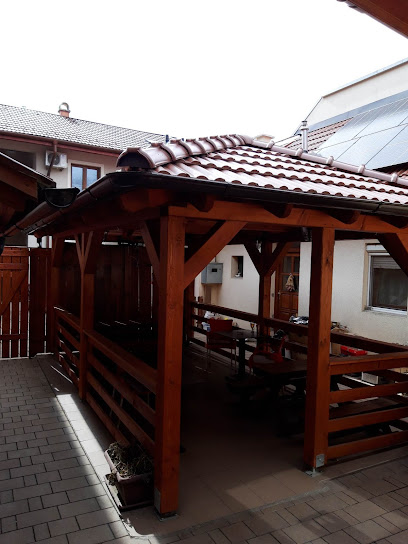
Szúnyog 2
Discover Szúnyog 2 Pub in Vác, Hungary - a lively spot for drinks, local flavors, and vibrant social gatherings.
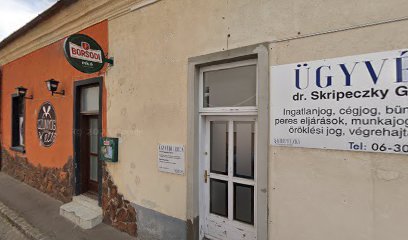
Mandala Bar & Café
Experience the vibrant atmosphere and delicious drinks at Mandala Bar & Café in Vác, Hungary - a local favorite for relaxation and enjoyment.

Béla bácsi kocsmája
Discover the cozy charm and local flavors of Béla bácsi kocsmája, a must-visit bar in the heart of Vác, Hungary.
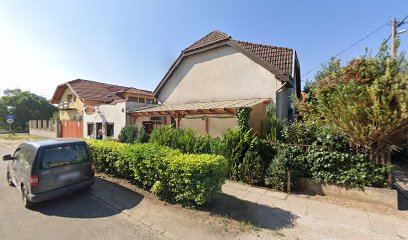
Drinks
Experience the charm of Vác at this cozy bar, offering a diverse drink menu and a welcoming atmosphere for all visitors.
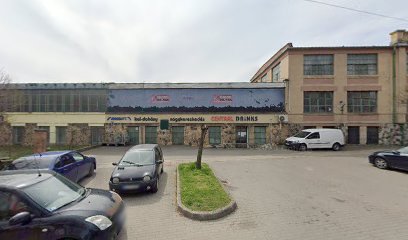
Local Phrases
-
- HelloSzia
[see-ah] - GoodbyeViszontlátásra
[vee-zont-la-tash-ra] - YesIgen
[ee-gen] - NoNem
[nem] - Please/You're welcomeKérem
[kay-rem] - Thank youKöszönöm
[kerr-suh-noem] - Excuse me/SorryElnézést
[el-nay-zayst] - How are you?Hogy vagy?
[hodj vodj] - Fine. And you?Jól vagyok. És te?
[yol vo-djok ays teh] - Do you speak English?Beszélsz angolul?
[be-sayl-s ang-oh-lool] - I don't understandNem értem
[nem ayr-tem]
- HelloSzia
-
- I'd like to see the menu, pleaseSzeretnék látni az étlapot, kérem
[seh-ret-nayk laht-nee ahs ayt-la-pot, kay-rem] - I don't eat meatNem eszem húst
[nem es-em hoost] - Cheers!Egészségedre!
[eg-ay-shey-geh-dreh] - I would like to pay, pleaseFizetnék, kérem
[fee-zeht-nayk, kay-rem]
- I'd like to see the menu, pleaseSzeretnék látni az étlapot, kérem
-
- Help!Segítség!
[she-geet-sayg] - Go away!Menj el!
[men yel] - Call the Police!Hívd a rendőrséget!
[heed ah ren-dur-say-get] - Call a doctor!Hívd az orvost!
[heed ahz ohr-vosht] - I'm lostElvesztem
[el-veh-stem] - I'm illBeteg vagyok
[beh-teg vo-djok]
- Help!Segítség!
-
- I'd like to buy...Szeretnék vásárolni...
[seh-ret-nayk va-sha-rohl-nee] - I'm just lookingCsak nézelődöm
[chahk nay-zeh-loh-dohm] - How much is it?Mennyibe kerül?
[men-nyee-beh keh-rool] - That's too expensiveEz túl drága
[ehz tool dra-gah] - Can you lower the price?Le tudnád engedni az árat?
[leh too-dnahd eng-ehd-nee ahs ah-raht]
- I'd like to buy...Szeretnék vásárolni...
-
- What time is it?Mennyi az idő?
[men-nyee ahz ee-doh] - It's one o'clockEgy óra van
[edge oh-rah vahn] - Half past (10)Fél (tíz) óra múlva
[fayl teez oh-rah mool-vah] - MorningReggel
[rehg-gehhl] - AfternoonDélután
[deyl-oo-tahn] - EveningEste
[eh-shteh] - YesterdayTegnap
[teg-nap] - TodayMa
[mah] - TomorrowHolnap
[hol-nap] - 1Egy
[edge] - 2Kettő
[kett-oh] - 3Három
[hah-rom] - 4Négy
[nayg] - 5Öt
[oht] - 6Hat
[haht] - 7Hét
[hayt] - 8Nyolc
[nyolts] - 9Kilenc
[keelents] - 10Tíz
[teaz]
- What time is it?Mennyi az idő?
-
- Where's a/the...?Hol van a...?
[hol vahn ah] - What's the address?Mi a cím?
[mee ah cheem] - Can you show me (on the map)?Meg tudnád mutatni (a térképen)?
[meg too-dnahd moo-tat-nee ah tair-kay-pen] - When's the next (bus)?Mikor jön a következő (busz)?
[mee-kor yern ah keh-vet-keh-zoh boos] - A ticket (to ....)Egy jegyet (....-ra)
[edge yeg-yet rah]
- Where's a/the...?Hol van a...?
History of Vac
-
The history of Vác dates back to pre-Roman times when Celtic tribes first inhabited the area. The Romans later established a settlement here, taking advantage of its strategic location along the Danube River. Remnants of Roman architecture, roads, and fortifications still hint at this ancient past, offering a glimpse into Vác's early days as a crucial outpost in the Roman Empire.
-
Vác rose to prominence in the medieval era, particularly after the establishment of the Roman Catholic Diocese of Vác in 1008 by King Stephen I of Hungary. The town became a vital religious and cultural center, with the construction of the Vác Cathedral and other significant ecclesiastical buildings. The medieval streets and squares of Vác still echo with the footsteps of bishops, scholars, and traders from centuries past.
-
During the 16th and 17th centuries, Vác fell under Ottoman rule as the Turks expanded their empire into Hungary. The town endured significant hardship and destruction during this period, including the transformation of several churches into mosques. Nonetheless, the resilience of Vác's residents kept the spirit of the town alive, laying the groundwork for its eventual recovery and growth.
-
The liberation of Vác from Turkish control in the late 17th century ushered in a period of Baroque revival. The town underwent extensive reconstruction, marked by the building of new churches, palaces, and civic buildings. The Cathedral of the Assumption, completed in the 18th century, stands as a testament to this era of architectural and cultural renaissance. Baroque influences are still prominently visible throughout the town, adding to its unique charm.
-
The 19th century was a time of significant political and social change in Hungary, and Vác was no exception. The town played a role in the Hungarian Revolution of 1848, with local citizens actively participating in the struggle for independence from Habsburg rule. Although the revolution was ultimately suppressed, the spirit of reform and national pride continued to shape the identity of Vác in the years that followed.
-
The late 19th and early 20th centuries brought industrialization to Vác, transforming it into a modern urban center. The construction of the Budapest-Vác railway in 1846, one of the first in Hungary, was a critical development that facilitated economic growth. Factories, schools, and public institutions sprang up, and the town expanded beyond its historical core. This era laid the foundation for Vác's contemporary character, blending historical heritage with modern progress.
-
World War II had a profound impact on Vác, with significant damage inflicted during the conflict. The post-war era saw a period of reconstruction and redevelopment under socialist rule. New residential areas and industrial facilities emerged, contributing to the town's growth. Despite the challenges, Vác managed to preserve its historical landmarks and continued to cultivate its cultural heritage.
-
Today, Vác is a vibrant town that harmoniously blends its rich history with contemporary life. It is known for its picturesque Danube promenade, lively festivals, and a thriving cultural scene. Visitors can explore a wealth of historical sites, from the Roman ruins to Baroque churches, while enjoying the modern amenities and warm hospitality that Vác offers. The town stands as a testament to the resilience and enduring spirit of its people throughout the ages.
Vac Essentials
-
Vac is conveniently located in the Pest County of Hungary, approximately 35 kilometers north of Budapest. The most common way to reach Vac is by taking a train from Budapest's Nyugati Railway Station, with frequent services running throughout the day. The journey typically takes around 25-30 minutes. Alternatively, you can drive or take a bus from Budapest; the drive takes about 45 minutes via the M2 motorway. For international travelers, the nearest major airport is Budapest Ferenc Liszt International Airport. From the airport, you can take a taxi or public transit to Nyugati Railway Station to catch a train to Vac.
-
Vac is a compact town where many attractions are within walking distance. For those who prefer not to walk, local buses and taxis are available. The town has a reliable public bus service that connects various neighborhoods and key points of interest. Taxis are also readily available and can be hailed on the street or booked via phone. For a more flexible option, car rentals are available in Budapest and can be used to explore Vac and its surroundings.
-
The official currency in Hungary is the Hungarian Forint (HUF). While credit cards are widely accepted in hotels, restaurants, and larger stores in Vac, it is advisable to carry some cash, especially if you plan to visit smaller shops or rural areas. ATMs are readily available throughout the town. Currency exchange services are also available, but it is recommended to exchange money at official exchange offices or banks to avoid unfavorable rates.
-
Vac is generally a safe destination for tourists. However, like any other place, it is important to take standard precautions. Avoid walking alone at night in poorly lit areas and keep an eye on your belongings, especially in crowded places. There are no specific high-crime areas targeting tourists in Vac, but it is always best to stay vigilant and be aware of your surroundings.
-
In case of emergency, dial 112 for immediate assistance. This number connects you to police, fire, and medical services. The local police station and medical facilities are available in Vac. It is also advisable to have travel insurance that covers medical emergencies. For minor health issues, pharmacies are readily available where you can purchase over-the-counter medications.
-
Fashion: Do dress modestly, especially when visiting religious sites. Avoid wearing overly revealing clothing. Religion: Do respect local customs and traditions. Always cover your head when entering churches. Public Transport: Do be respectful and give up your seat to elderly passengers. Don’t eat or drink on public transport. Greetings: Do greet people with a handshake and maintain eye contact. A slight nod of the head is also a sign of respect. Eating & Drinking: Do try local delicacies and accept food offerings graciously. Don’t refuse hospitality, as it is considered impolite.
-
To experience Vac like a local, visit the local markets where you can buy fresh produce and traditional Hungarian goods. Engage with locals, as they are often friendly and willing to share stories about the town's history and culture. Don’t miss the Vac Cathedral and the Tragor Ignac Museum for a deeper understanding of the town's heritage. For a unique experience, take a stroll along the Danube River promenade, which offers beautiful views and a tranquil atmosphere.
Trending Landmark in Vac
-
National Botanical Garden
-
Assumption Cathedral, Vác
-
Triumphal Arch of Vác
-
Tragor Ignác Múzeum Memento Mori/Ars Memorandi Kiállítóhely
-
Church of the Whites
-
Bishop's Palace
-
Pannónia Ház
-
Bécsi vagy felső kapu
-
Sajdik Ferenc gyűjtemény
-
Tourinform Vác
-
Harangjáték pavilon
-
Vác vára
-
Vác Város Levéltára
-
Vác belváros
-
Vác Liszt Ferenc sétány
Nearby Cities to Vac
-
Things To Do in Budapest
-
Things To Do in Tatabanya
-
Things To Do in Salgotarjan
-
Things To Do in Szekesfehervar
-
Things To Do in Eger
-
Things To Do in Banská Bystrica
-
Things To Do in Kecskemet
-
Things To Do in Gyor
-
Things To Do in Veszprem
-
Things To Do in Miskolc
-
Things To Do in Trnava
-
Things To Do in Martin
-
Things To Do in Trenčín
-
Things To Do in Bratislava
-
Things To Do in Žilina









